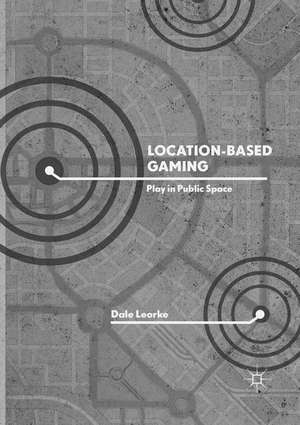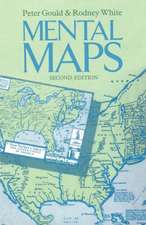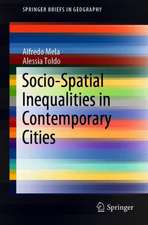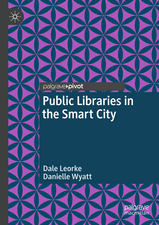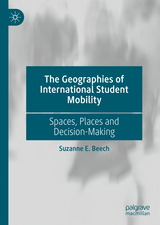Location-Based Gaming: Play in Public Space
Autor Dale Leorkeen Limba Engleză Paperback – feb 2019
Location-based games emerged in the early 2000s following the commercialisation of GPS and artistic experimentation with ‘locative media’ technologies. Location-based games are played in everyday public spaces using GPS and networked, mobile technologies to track their players’ location. This book traces the evolution of location-based gaming, from its emergence as a marginal practice to its recent popularisation through smartphone apps like Pokémon Go and its incorporation into ‘smart city’ strategies.
Drawing on this history and an analysis of the scholarly and mainstream literature on location-based games, Leorke unpacks the key claims made about them. These claims position location-based games as alternately enriching or diminishing their players’ engagement with the people and places they encounter through the game. Through rich case studies and interviews with location-based game designers and players, Leorke tests out and challenges these celebratory and pessimistic discourses. He argues for a more grounded approach to researching location-based games and their impact on public space that reflects the ideologies, lived experiences, and institutional imperatives that circulate around their design and performance.
By situating location-based games within broader debates about the role of play and digitisation in public life, Location-Based Gaming offers an original and timely account of location-based gaming and its growing prominence.
| Toate formatele și edițiile | Preț | Express |
|---|---|---|
| Paperback (1) | 384.70 lei 6-8 săpt. | |
| Springer Nature Singapore – feb 2019 | 384.70 lei 6-8 săpt. | |
| Hardback (1) | 529.92 lei 6-8 săpt. | |
| Springer Nature Singapore – 12 iul 2018 | 529.92 lei 6-8 săpt. |
Preț: 384.70 lei
Nou
Puncte Express: 577
Preț estimativ în valută:
73.64€ • 80.01$ • 61.89£
73.64€ • 80.01$ • 61.89£
Carte tipărită la comandă
Livrare economică 21 aprilie-05 mai
Preluare comenzi: 021 569.72.76
Specificații
ISBN-13: 9789811344787
ISBN-10: 9811344787
Pagini: 280
Ilustrații: XII, 266 p. 26 illus.
Dimensiuni: 148 x 210 x 15 mm
Greutate: 0.34 kg
Ediția:Softcover reprint of the original 1st ed. 2019
Editura: Springer Nature Singapore
Colecția Palgrave Macmillan
Locul publicării:Singapore, Singapore
ISBN-10: 9811344787
Pagini: 280
Ilustrații: XII, 266 p. 26 illus.
Dimensiuni: 148 x 210 x 15 mm
Greutate: 0.34 kg
Ediția:Softcover reprint of the original 1st ed. 2019
Editura: Springer Nature Singapore
Colecția Palgrave Macmillan
Locul publicării:Singapore, Singapore
Cuprins
1. Introduction.- Part One: Discourses and Ideologies.- 2. A Definition and Brief History of Location-based Games (2001-8).- 3. ‘The City Becomes the Game’s Playground’: Discursive Claims.- Part Two: The App Ecology.- 4. Location-based Gaming’s Second Phase (2008 – present).- 5: Location-based Gaming Apps and the Labour of Play.- Part 3: City-funded Location-based Games.- 6. Urban Policy and Participatory Planning Location-based Games.- 7. Wayfinding and Codemaking in the City of Melbourne.- 8. Conclusion.
Recenzii
“This book is primarily for those interested in research or scholarly inquiry in location based gaming. … if you are interested in doing scholarly research in location-based gaming or some similar area, it is a good book to have.” (J. M. Artz, Computing Reviews, August 15, 2019)
Notă biografică
Dale Leorke is a Postdoctoral Researcher at the Centre of Excellence in Game Culture Studies at the University of Tampere, Finland.
Textul de pe ultima copertă
Location-based games emerged in the early 2000s following the commercialisation of GPS and artistic experimentation with ‘locative media’ technologies. Location-based games are played in everyday public spaces using GPS and networked, mobile technologies to track their players’ location. This book traces the evolution of location-based gaming, from its emergence as a marginal practice to its recent popularisation through smartphone apps like Pokémon Go and its incorporation into ‘smart city’ strategies.
Drawing on this history and an analysis of the scholarly and mainstream literature on location-based games, Leorke unpacks the key claims made about them. These claims position location-based games as alternately enriching or diminishing their players’ engagement with the people and places they encounter through the game. Through rich case studies and interviews with location-based game designers and players, Leorke tests out and challenges these celebratoryand pessimistic discourses. He argues for a more grounded approach to researching location-based games and their impact on public space that reflects the ideologies, lived experiences, and institutional imperatives that circulate around their design and performance.
By situating location-based games within broader debates about the role of play and digitisation in public life, Location-Based Gaming offers an original and timely account of location-based gaming and its growing prominence.
Caracteristici
First book to combine a theoretical and empirical analysis of location-based games, from their emergence in the early 2000s through to their current commercial and publicly-funded iterations Provides unique insights that contribute to scholarly debates around location-based games and the broader transformation of everyday urban life by digital technologies and platforms Offers a key intervention into the scholarship on location-based and location-aware technologies in public space Provides an up-to-date, critical account of current developments in the field of location-based game design and location-aware devices more generally Analyses implications for policymakers and designers of location-based games, providing recommendations and a framework for their future development
